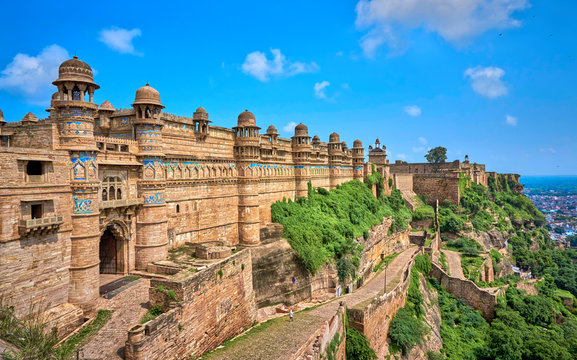¤ 11 minutes Read
Khajuraho
A complete tourist and cultural guide

Located in Madhya Pradesh, is world-renowned for its stunning group of temples recognized as a UNESCO World Heritage Site. Famous for their intricate carvings and exquisite architecture, these temples depict art, spirituality, and the celebration of life. Beyond temples, Khajuraho also offers cultural performances, serene lakes, and nearby natural wonders, making it a perfect blend of history, culture, and nature.
Wiki Link: Khajuraho
Must-Visit Attractions in Khajuraho

Kandariya Mahadev Temple
The largest and most ornate temple, dedicated to Lord Shiva, renowned for its intricate sculptures and breathtaking architectural design.
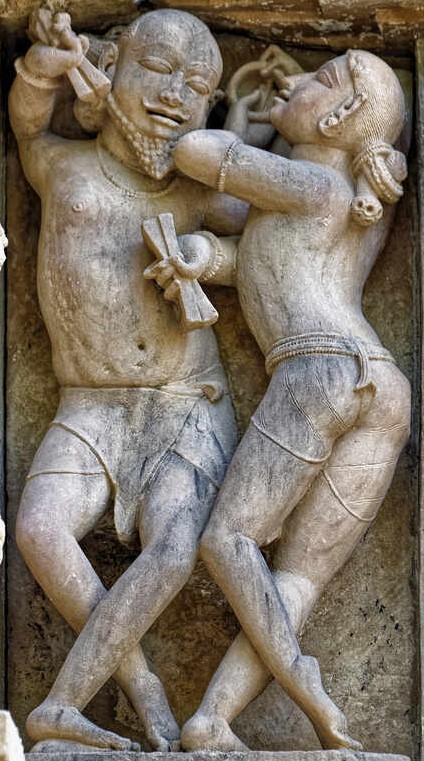
Lakshmana Temple
One of the oldest temples in Khajuraho, dedicated to Lord Vishnu, featuring detailed carvings that showcase the region’s rich artistry.

Sarnath
Dedicated to Lord Shiva, this temple is adorned with majestic stone sculptures, including beautifully carved celestial beings and animals.

Chitragupta Temple
This temple dedicated to the Sun God is admired for its detailed carvings and depictions of royal processions and celestial figures.
Major Attractions Nearby Khajuraho
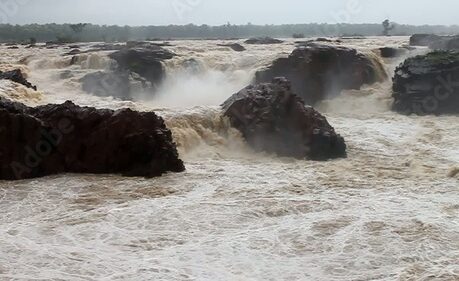
Raneh Falls
A stunning natural waterfall cascading over colorful canyon rocks, offering breathtaking views, especially during the monsoon.

Panna National Park
A famous tiger reserve and wildlife sanctuary, perfect for spotting tigers, leopards, and exotic bird species amidst lush forests.

Ajaygarh Fort
An ancient hilltop fort with panoramic views, known for its historic ruins and scenic trekking experience.

Ken Gharial Sanctuary
A unique sanctuary along the Ken River, home to gharials, crocodiles, and diverse birdlife, ideal for nature lovers.
Things to do in Khajuraho
From admiring ancient sculptures to watching live cultural shows and exploring nearby wildlife, the city offers experiences that blend history with adventure

Explore the Khajuraho Temples
Walk through the UNESCO-listed temple complexes and admire the intricate carvings, which depict spirituality, mythology, and daily life.

Watch the Light and Sound Show
Experience the grandeur of the temples in a new light as stories of their history are narrated through a spectacular sound and light show every evening.

Visit Raneh Falls Canyon
Take a short trip to Raneh Falls and enjoy the sight of water flowing over multicolored canyon rocks, a perfect spot for nature and photography lovers.

Attend Cultural Dance Performances
Witness vibrant classical and folk dances of India at cultural shows that bring the spirit of Indian traditions alive in a captivating way.
The Performing Art of Khajuraho
A cultural hub where art and tradition come alive through music and dance. The town is best known for the Khajuraho Dance Festival, which celebrates classical dance forms like Kathak, Bharatanatyam, Odissi, Kuchipudi, and Manipuri against the majestic backdrop of the temples. Folk music and tribal dances of Madhya Pradesh also enrich the performances, creating a colorful blend of heritage and artistry. These shows not only preserve India’s traditional performing arts but also give visitors a chance to experience the spiritual and cultural essence of Khajuraho in a mesmerizing way.
Sangeet
Folk Music
Bhajans
Hindustani classical music, especially the Dhrupad style, holds prominence as it was once patronized by local rulers. The soulful strains of bansuri (flute) and tabla performances are often part of cultural evenings. Folk traditions of Bundelkhand also thrive here, with ballads narrating tales of bravery, romance, and devotion.
Maach
Karma
Tertali
Famous for its Khajuraho Dance Festival, where India’s classical dance forms come alive. Kathak, with its graceful spins and storytelling, and Bharatanatyam, with expressive gestures, are highlights of the festival. Odissi and Kuchipudi performances add lyrical beauty, while folk dances of Bundelkhand bring energy and vibrancy.
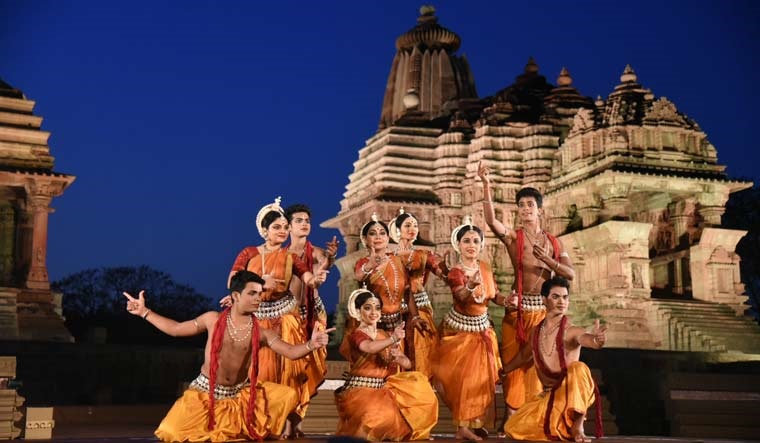
City Vibes - Timeless Spiritual Charm
A blend of spirituality, history, and cultural charm. The town feels serene, with its beautifully carved temples standing as timeless guardians of art and devotion. During the day, the streets are alive with travelers exploring handicraft shops, local eateries, and cultural centers. Evenings glow with vibrant dance and music performances, while the light and sound shows add a mystical touch to the temple complex. Khajuraho is a place where tradition meets tranquility, offering visitors an immersive journey into India’s artistic and spiritual soul.
Heritage of Khajuraho
Rooted in its world-renowned group of temples built by the Chandela dynasty between the 9th and 12th centuries. Recognized as a UNESCO World Heritage Site, these temples are celebrated for their intricate sculptures depicting gods, goddesses, celestial beings, and scenes of daily life. Beyond the temples, Khajuraho’s heritage also includes the cultural traditions of Bundelkhand—folk music, dance, and storytelling that continue to thrive in the region. Together, these elements preserve the spirit of India’s artistic brilliance and spiritual legacy, making Khajuraho a living museum of history and culture.

Cuisine of Khajuraho
A paradise for food lovers, offering a variety of traditional delights.

Bundeli Gosht
A spicy mutton curry prepared with local spices. It is rich, flavorful, and best enjoyed with rotis or rice, giving a taste of authentic Bundelkhand cuisine.

Poha
A popular breakfast dish made of flattened rice, Poha is cooked with onions, green chilies, and mustard seeds, then garnished with sev and lemon
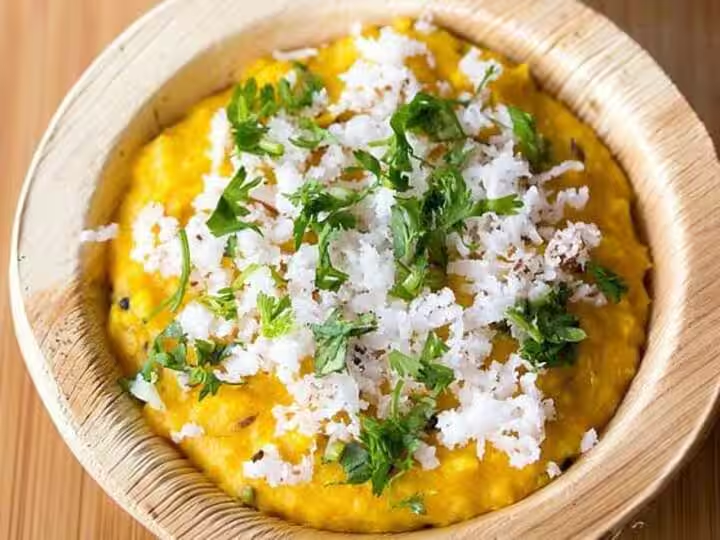
Bhutte Ka Kees
Made from grated corn cooked with milk and spices. Its creamy texture and aromatic flavor make it a unique dish to relish during your visit.
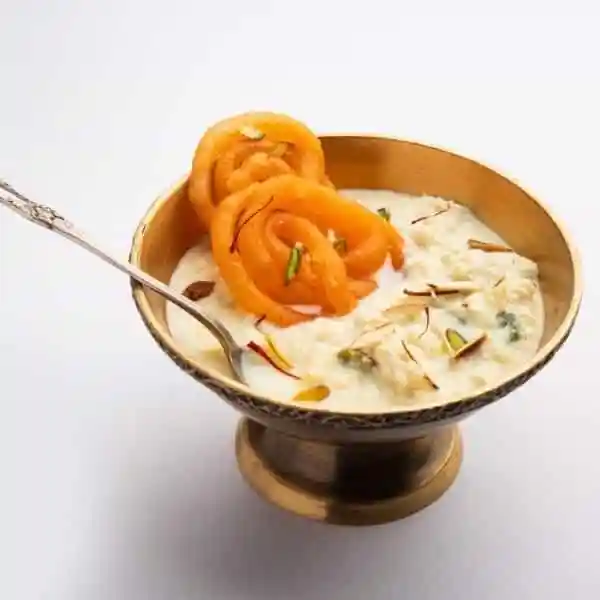
Jalebi with Rabri
A favorite sweet treat, hot jalebis served with thick, creamy rabri. The combination of crispiness and sweetness makes it the perfect way to end a meal.
Shopping in Khajuraho
A blend of culture, tradition, and artistry. From intricate handicrafts to local souvenirs, the markets here are perfect for taking home a piece of Bundelkhand’s heritage.

Stone Carvings
Miniature stone sculptures inspired by the temple carvings are popular souvenirs. These finely detailed pieces reflect the craftsmanship of the region and make for unique décor items.
Handloom Textiles
Local handwoven textiles, including sarees and dupattas, showcase vibrant patterns and earthy tones. They reflect the traditional weaving styles of Madhya Pradesh and are perfect for authentic keepsakes.

Silver Jewelry
Delicately crafted silver jewelry, often embedded with semi-precious stones, is widely available in local bazaars. These accessories highlight Bundelkhand’s artistic traditions and are both affordable and stylish.
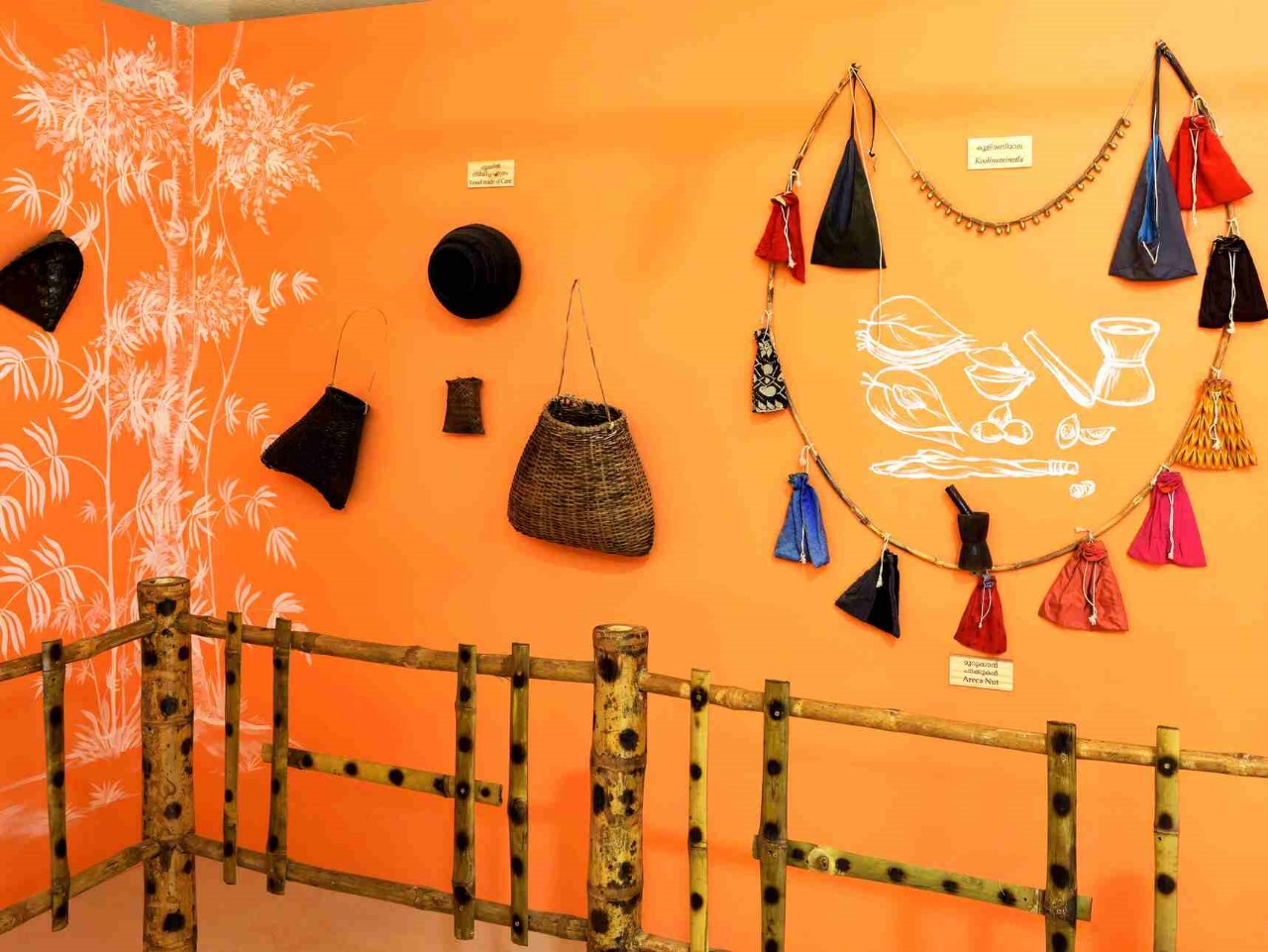
Tribal Handicrafts
Masks, figurines, and wooden crafts made by local tribal artisans are must-buys. These handicrafts carry cultural significance and add a rustic charm to any collection.
Tourist's Handbook
The best time to visit Khajuraho is during the winter months, from October to March, when the weather is cool and pleasant. This season is perfect for exploring the temples, enjoying cultural festivals, and experiencing the Khajuraho Dance Festival held in February. Summers can be extremely hot, making sightseeing difficult, while the monsoon brings humidity and heavy rains, though it also adds greenery to the surroundings. For the most comfortable experience, plan your trip in winter.
Be Careful Around Temples – Some temple steps are steep and worn out; wear sturdy footwear and watch your step while exploring.
Avoid Overpriced Guides – Only hire licensed guides recommended by your hotel or official counters to avoid being overcharged.
Respect Local Customs – Dress modestly when visiting temples and always ask before photographing locals or performers.
Stay Alert in Markets – Bargain politely while shopping, but be cautious of overly pushy sellers.
Drink Safe Water – Stick to bottled or filtered water to avoid stomach issues, especially during long sightseeing days.
Simple and convenient, as most of the main temples and attractions are located close to each other. Auto-rickshaws and cycle-rickshaws are the most common means of transport for short distances. For nearby excursions such as Raneh Falls or Panna National Park, hiring a taxi or private cab is the best option. Walking is also enjoyable within the town, especially around the temple complex and local markets. Bicycles are available for rent, offering a unique way to explore the serene surroundings at your own pace.
Overpriced Guide Services – Some unlicensed guides may charge excessively; always hire through official counters or hotels.
Souvenir Overcharging – Stone carvings and handicrafts may be quoted at inflated prices; compare rates or buy from government emporiums.
Fake Donation Requests – Be cautious of people asking for donations near temples; only contribute at official counters.
Taxi Fare Hikes – Confirm fares in advance or use trusted cab services to avoid overpaying for short trips.
Pushy Sales Around Temples – Vendors may insist you buy souvenirs or trinkets; politely decline if you’re not interested.
Popular Khajuraho Blogs
- The Travel Curry
- Places to visit in Varanasi
- Places to visit nearby Varanasi
- India’s most popular destination
- India’s archaeological marvels
Recommended articles
- Uttar Pradesh Cultural guide
- Places to visit in Varanasi
- Places to visit nearby Varanasi
- India’s most popular destination

